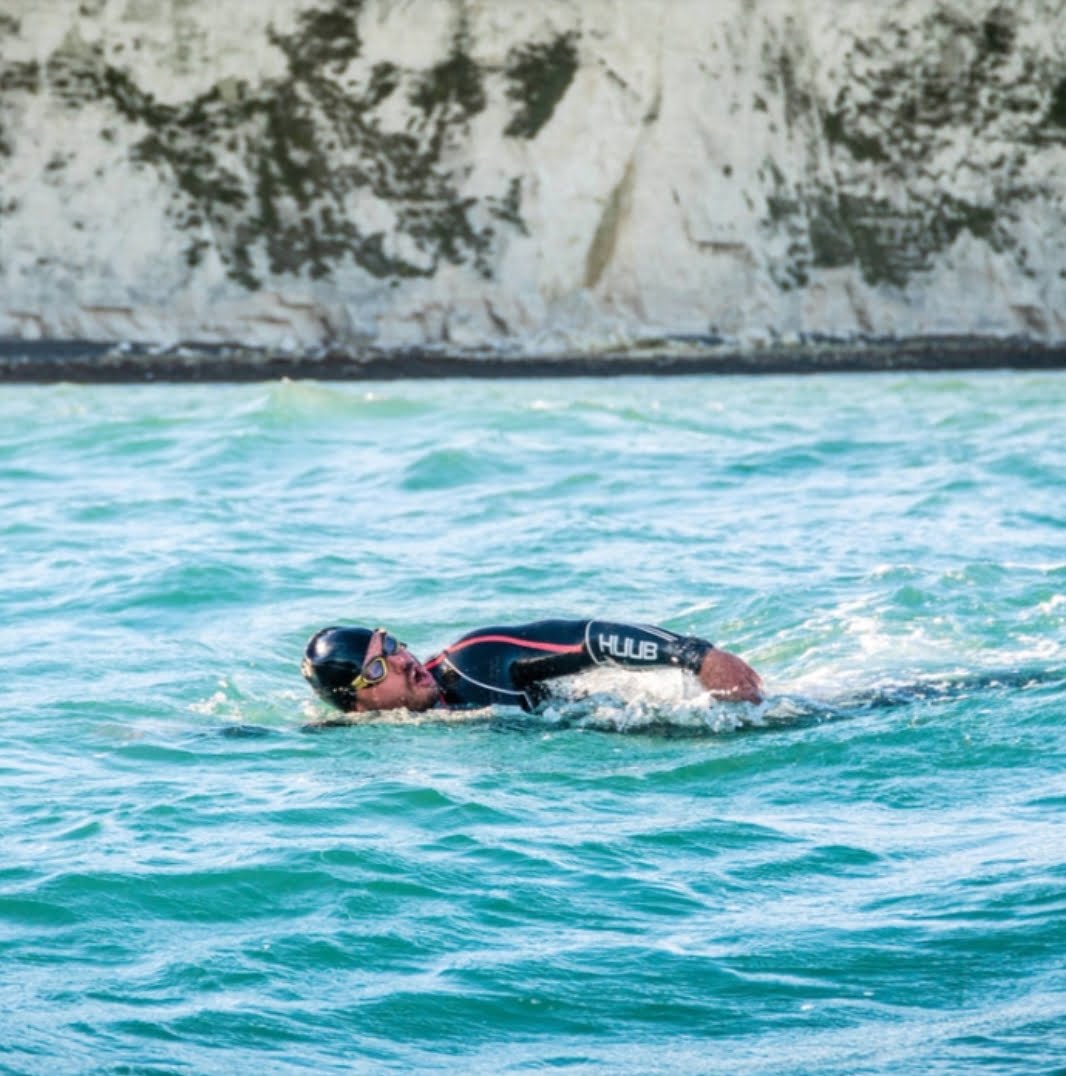Strongman on the challenges he faces in his 3,220-kilometre, 100-day voyage.
Strongman Ross Edgley is bidding to become the first man to swim around the whole of mainland Great Britain.
Renowned for such feats as a rope climb to the height of Everest and swimming 100 kilometres in the Caribbean with a tree strapped to his back, his 3,220km swimming marathon (2,000 miles) is his latest venture.
He set off on June 1 and is swimming on average six hours at a time in a clockwise direction, and will not touch shore until arriving at London’s Tower Bridge in an estimated 100 days.
Here’s what the epic voyage takes in his own words…
‘Swimming the Channel on a daily basis’
“It’s the equivalent of swimming the English Channel every day. But I know my body can take it. I know I can be the first person in history to achieve it.”
‘Unfinished business from the Caribbean’
“Earlier this year, I attempted to swim from Martinique to St Lucia while tied to a tree. I’d aimed to swim 40km point to point but the current was totally against me and kept dragging me back. Even though I didn’t reach the shore, I actually swam over 100km in the end. While the athlete in me was happy with that, the adventurer in me had unfinished business. So, I phoned up the Royal Marines when I returned to the UK and asked if I could swim for 48 hours straight, just to see what I’ve got in the locker. The swim went really well and I hit 126km. One of the Marines mentioned the idea of swimming around the entirety of Britain – something that’s never been done before – and I thought, ‘why not?’”
‘Around Great Britain in 100 days’
“By looking at my swim metrics and comparing them to people who’d rowed around the entirety of Great Britain, I was able to estimate 100 days as a target. Oddly enough, in very bad conditions, my open water swimming times are the same as those of the rowers. A friend of mine named Sean Conway once swam the length of Great Britain in 135 days. I’m looking to do more than double that distance in less time.”
‘Turning into a prune’
“A lot of experienced open water swimmers have told me that my skin will eventually reject being in salt water for such a long time. I got a taste of this during my 48-hour swim with the Marines, where my hands and feet pruned – essentially I got trench foot. What’s more, being in a wetsuit for months on end will probably mean I develop sores. Hopefully these turn to calluses, otherwise the pain could be unbearable under my armpits and parts where the wetsuit rubs. My body’s going to break down at sea, I know that but I must be mentally ready.”
‘Chess with Mother Nature’
“To do this sort of challenge I need the ability to swim 50km day and night, powering through 3m waves. But if the currents are against me I have no chance. The GB rowing challenge, which follows the same route, is labelled the world’s toughest rowing race on account of the tides, unpredictability and weather. When I told its organisers I’d be swimming it they told me I was crazy. “If you get it wrong around The Highlands you’ve eight knots coming against you,” they said. “So even if you are swimming two to three knots, an Olympic level, you’ll still be going back four knots.” It’s basically going to be a game of chess with Mother Nature – you can swim hard, but you need to swim smart.”
‘A wardrobe of wetsuits’
“We’re doing it in the spirit of open water swimming – no buoyancy aids, gloves only needed during cold periods. The only advantage I’ll have is a collection of swimsuits tailored for estimated weight loss, ranging from full Ross, to emaciated Ross 60 or so days in, when I’ll have shifted a few stones. My legs will probably atrophy first. I won’t be using them, they’ll probably shrivel – kicking your legs account for only 10 per cent overall propulsion, even with Olympic swimmers. We’ll also be taking a picture of me each day, so people can see my body’s transformation as I go.”
‘Turning into a five-year-old’
“It’s not a solo mission at all, it’s a team event, and the captain of my boat is going to be my hero. He will plot everything – he has all the tidal maps, all the electronic versions, all over the boat. I’ll also be plotting where I am on a map every day to boost morale. When you’re out at sea and all you can see is the bottom of the sea bed, it’s very easy to lose track of where you are. So it’ll be nice to clamber back on the boat and see that I’ve made progress. Ultimately, when you’re fatigued you have the cognitive function of a 5-year-old, so I’ll be like ‘point me in the right direction and let me know when I’ve got to change’.”
‘An anti-jellyfish beard’
“Wildlife is always a danger when you’re isolated in the sea. Giant jellyfish are a particular worry. I won’t shave. Because you’re leading with the head and the face will be most exposed, any protection, like a big beard, will help. I’ll try and grow it so by the time I get up to Scotland it’s fairly rugged. I’ll also encounter sea otters, dolphins and killer whales along the way, which I’m actually looking forward to. It’ll help break things up for me and be an incredible privilege to see.”
Credits: http://www.redbullcontentpool.com/international/AP-1VVDW3RA91W11






